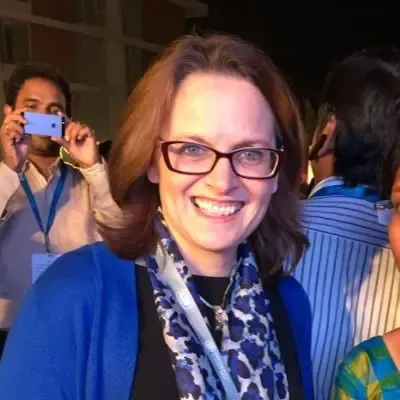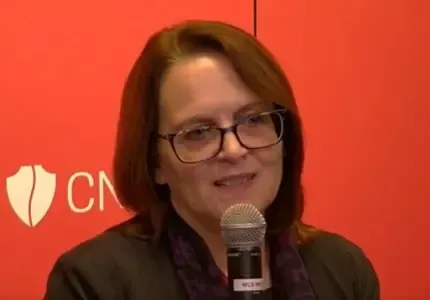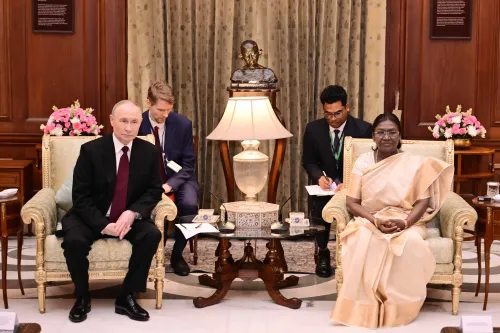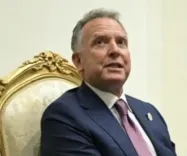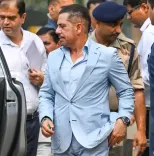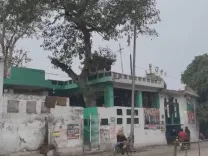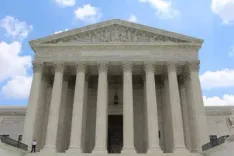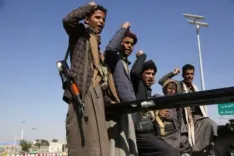'One Nation, One Election': Is This the Key to Social and Economic Reform?
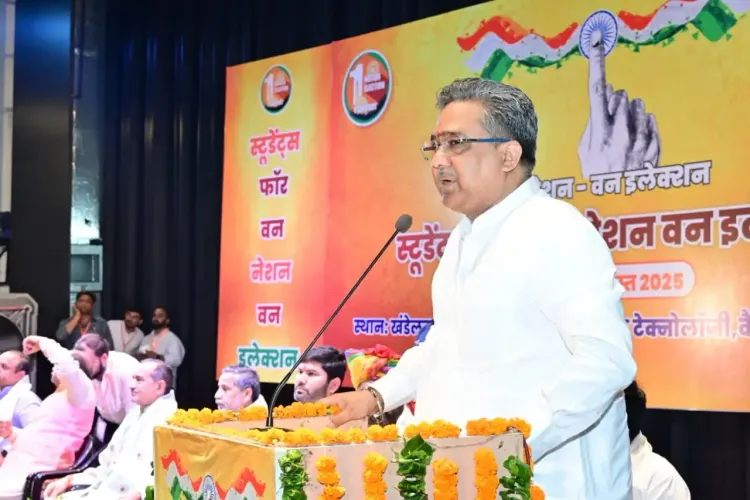
Synopsis
Key Takeaways
- Proposal aims for synchronized elections to improve governance.
- Frequent elections strain national resources and hinder productivity.
- Empowerment of youth in politics is a key objective.
- Single unified voter list promotes transparency.
- Public support is essential for the initiative's success.
Jaipur, Aug 30 (NationPress) During a convention for student leaders in Jaipur advocating for the 'One Nation, One Election' initiative, BJP National General Secretary Sunil Bansal remarked on Saturday that this proposal signifies a pivotal reform in India's social and economic landscape.
He called for the campaign to transition from mere events and information dissemination to a widespread movement aimed at ensuring clean and fair elections.
"This concept is not novel," stated BJP leader Bansal.
"India experienced synchronized elections for the first two decades post-Independence. The challenge of frequent elections emerged after 1967. For over three decades, there hasn't been a single year free from elections in some part of the country."
He pointed to Maharashtra as a significant case, noting that in the past five years, the state has been under the Model Code of Conduct for 300 days—effectively making governance nearly unproductive for almost a year.
"The core issue extends beyond merely winning elections; it involves serving the populace thereafter. Frequent elections hinder leaders' ability to govern or focus on public welfare," he expressed.
BJP leader Bansal also highlighted the financial strain of constant elections, revealing that the recent Lok Sabha elections incurred a cost of Rs 1.35 lakh crore, averaging Rs 1,400 per vote.
"Over five years, election-related costs could escalate to Rs 5 to 7 lakh crore, putting immense pressure on national resources. More than one crore personnel are engaged in the election process, disrupting routine governance for a minimum of three months each cycle," he noted.
Labeling it a national reform, BJP leader Bansal asserted that 'One Nation, One Election' is not merely Prime Minister Narendra Modi's agenda, but a collective national agenda.
He contended that this system would empower the youth in politics and disrupt the dominance of dynastic political frameworks.
In a direct critique of Congress leader Rahul Gandhi, BJP leader Bansal accused him of disseminating false information regarding voter lists.
"The Constitution grants every citizen the right to vote, yet in regions like Bengal, numerous illegal names have infiltrated the voter rolls. With 'One Nation, One Election', we will establish a single unified voter list, enhancing transparency and fairness," he added.
BJP leader Bansal concluded with a call for robust public support: "Let our movement gain such strength that even leaders like Rahul Gandhi, Mamata Banerjee, and M.K. Stalin hesitate to oppose it."
The student leader convention in Jaipur was part of BJP's extensive public engagement regarding the 'One Nation, One Election' initiative, aimed at streamlining India's electoral process, diminishing costs, and boosting governance efficiency.


